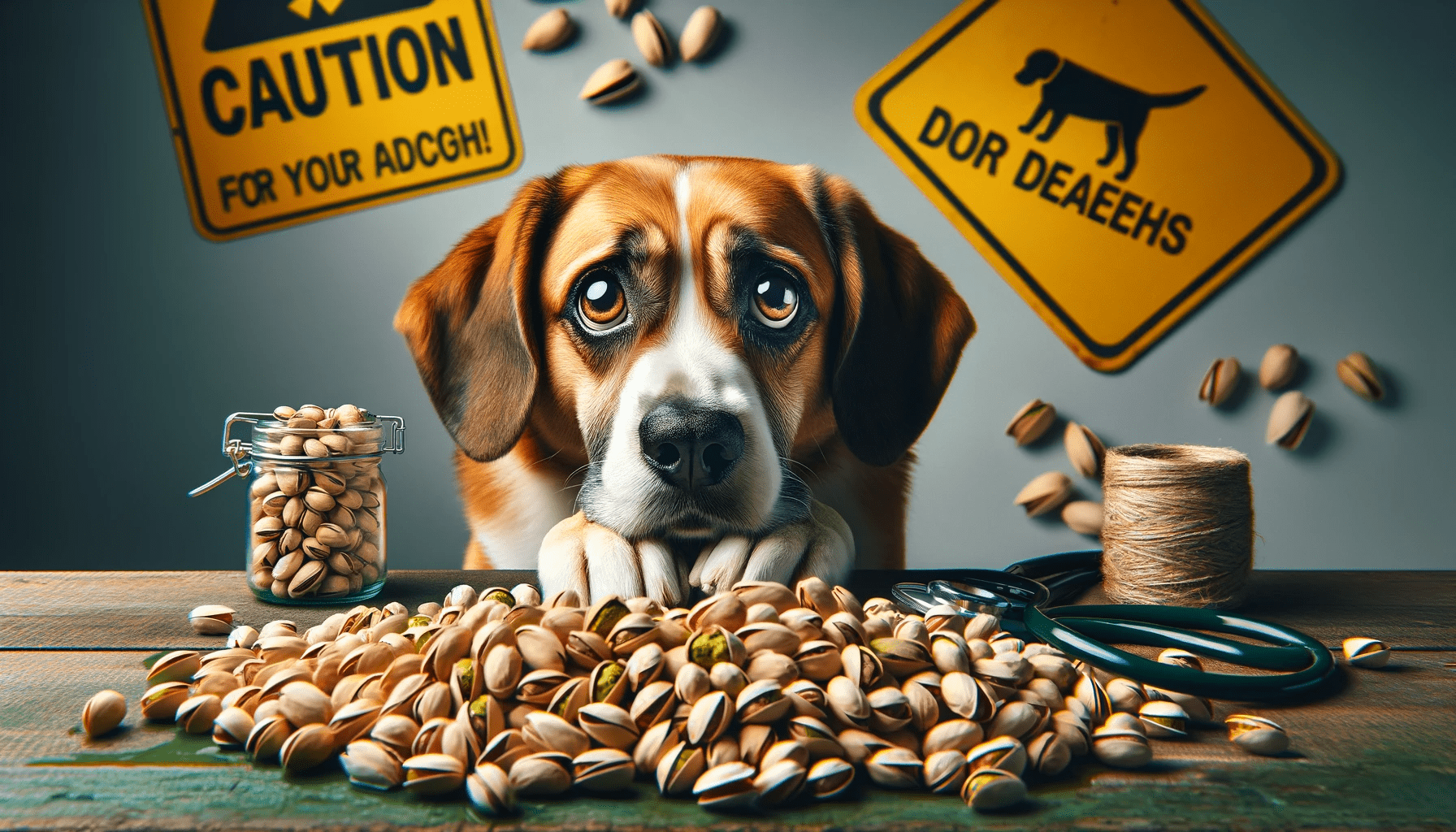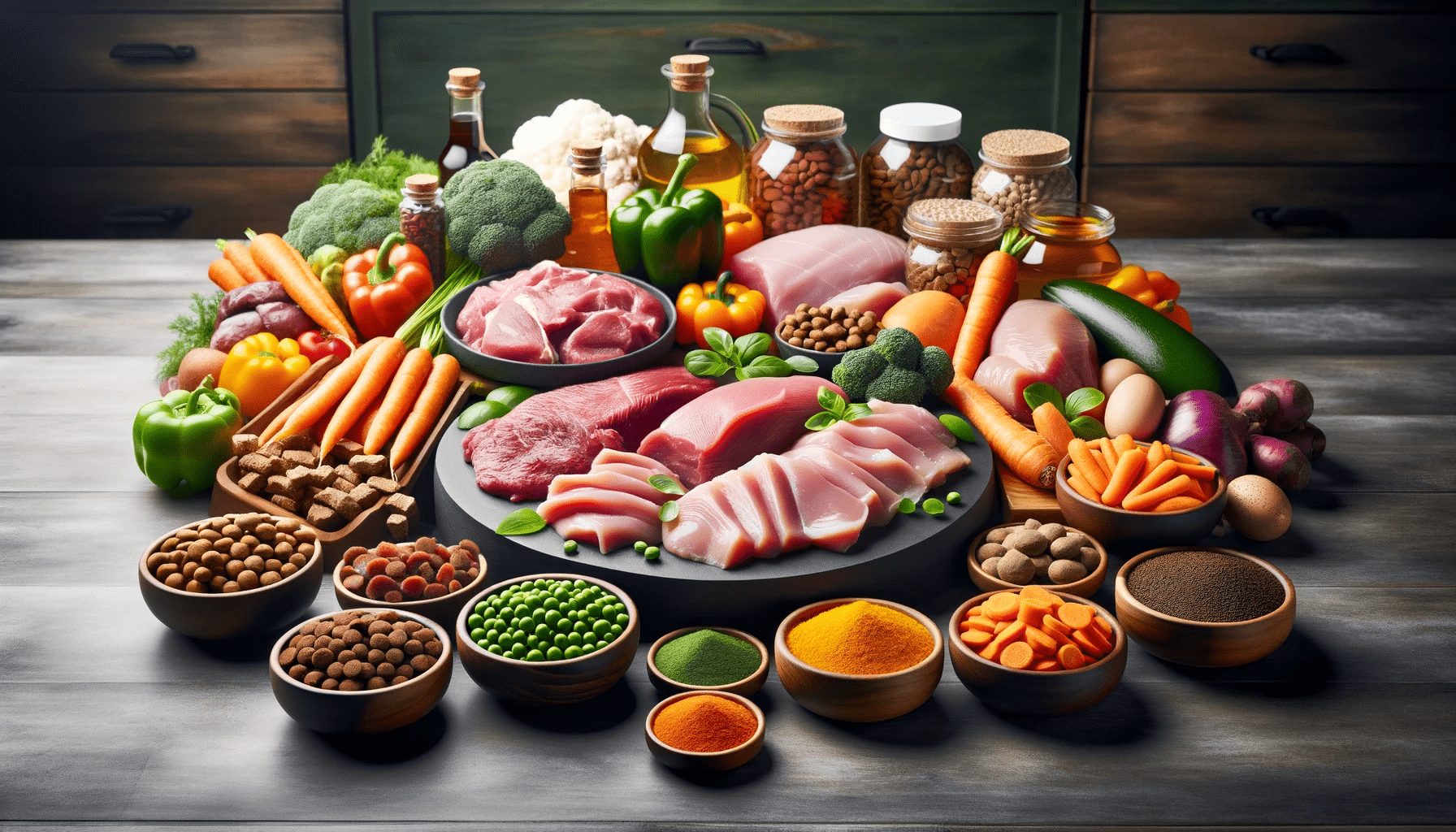Want to give your furry friend the best nutrition possible? Optimize your dog's diet with these 14 treat tips!
- Understand your dog's nutritional needs
- Choose high-quality protein treats
- Look for natural and organic options
Avoid artificial colors and flavors, and consider grain-free treats for sensitive stomachs.
- Don't forget about dental health benefits
- Steer clear of treats with added sugars or sweeteners
Consult with your veterinarian for personalized recommendations and rotate treats to provide variety in nutrition.
Your pup will thank you!
Key Takeaways
- Dogs require a balanced diet of proteins, carbohydrates, fats, vitamins, and minerals.
- Protein treats support muscle growth, weight management, healthy skin, and a strong immune system.
- Natural and organic treats are free from artificial additives, promote better digestion, and offer nutritional value.
- Read labels and choose treats with real, natural ingredients, avoiding artificial colors and flavors for optimal nutrition.
Understand Your Dog's Nutritional Needs
To optimize your dog's nutrition, it's important to understand their specific dietary requirements. Providing your dog with a balanced and nutritious diet is crucial for their overall health and well-being. Just like humans, dogs need a combination of proteins, carbohydrates, fats, vitamins, and minerals to thrive.
Protein is an essential nutrient for dogs as it helps support muscle growth, repair, and maintenance. Good sources of protein for dogs include meat, fish, and poultry. Carbohydrates provide energy and can be found in grains, fruits, and vegetables. It's important to choose high-quality carbohydrates that are easily digestible for your furry friend.
Fats are another important component of your dog's diet. They're a concentrated source of energy and help with nutrient absorption. Incorporating healthy fats like fish oil or flaxseed oil into your dog's diet can have many benefits for their skin, coat, and overall health.
Vitamins and minerals are necessary for various bodily functions in dogs. They play a crucial role in maintaining a strong immune system, promoting healthy bone growth, and supporting overall health. While most commercial dog foods are formulated to meet these nutritional requirements, it's always a good idea to consult with your veterinarian to ensure your dog is getting the right balance of nutrients.
Choose High-Quality Protein Treats
When choosing high-quality protein treats for your dog, consider their specific dietary needs and opt for options that support muscle growth, repair, and maintenance. High protein options provide numerous benefits for your furry friend, including improved energy levels, enhanced muscle development, and overall better health.
Here are four reasons why protein treats should be a part of your dog's diet:
- Muscle growth: Protein is essential for building and repairing muscles. Treats with high protein content can aid in muscle development, making them especially beneficial for active and athletic dogs.
- Weight management: Protein-rich treats can help your dog feel full for longer periods, reducing the chances of overeating. This can be particularly helpful for dogs that struggle with weight management or are on a weight loss program.
- Healthy skin and coat: Protein plays a crucial role in maintaining healthy skin and a shiny coat. Treats with high protein content can help improve the condition of your dog's skin and fur, reducing issues like dryness and excessive shedding.
- Immune system support: Protein is vital for the proper functioning of the immune system. By incorporating protein treats into your dog's diet, you can provide an extra boost to their immune system, helping them stay healthy and ward off illnesses.
Choosing high-quality protein treats for your dog is an excellent way to optimize their nutrition and support their overall well-being. Remember to consult with your veterinarian to determine the appropriate amount of protein treats for your dog based on their individual needs.
Look for Natural and Organic Options
When it comes to treating your dog, opting for natural and organic options can offer numerous benefits.
Natural treats are often free from artificial additives, preservatives, and fillers, making them a healthier choice for your furry friend.
Additionally, organic treats are made from ingredients that are grown without the use of synthetic pesticides or fertilizers, providing a more natural and sustainable option.
Benefits of Natural Treats
Maximize your dog's health and well-being by incorporating natural and organic treats into their diet. Natural treats offer numerous health benefits for your furry friend. Here are some reasons why you should consider opting for treats made with natural ingredients:
- Improved Digestion: Natural treats often contain high-quality ingredients that are easier for dogs to digest, promoting better digestion and nutrient absorption.
- Allergen-Free: Many commercially available treats contain artificial additives and fillers that can trigger allergies. Natural treats, on the other hand, are free from these potential allergens, making them a safer choice for dogs with sensitivities.
- Nutritional Value: Natural treats are packed with essential nutrients, vitamins, and minerals that contribute to your dog's overall health and vitality.
- Dental Health: Some natural treats are designed to promote dental health by reducing plaque and tartar buildup, freshening breath, and maintaining healthy gums.
Healthier Organic Treat Options
To ensure the optimal nutrition for your dog, continue prioritizing their health with healthier organic treat options.
Choosing organic treats for your furry friend can provide numerous health benefits. Organic options are made from high-quality ingredients that are free from pesticides, artificial additives, and preservatives. These treats are typically made with natural ingredients, such as organic meat, fruits, and vegetables, which are rich in essential nutrients.
By opting for organic treats, you can help support your dog's overall wellbeing, as they're less likely to be exposed to harmful chemicals and potential allergens. Additionally, organic treats can aid in digestion, boost the immune system, and contribute to healthier skin and coat.
When selecting treats for your dog, look for the organic label to ensure that you're giving them the best possible options.
Choosing Quality Ingredients
To ensure the optimal nutrition for your dog, continue prioritizing their health by choosing natural and organic options for their treats. Understanding canine digestion and the importance of balanced nutrition are key factors in making informed choices for your furry friend. Here are some tips to help you choose quality ingredients:
- Read the labels: Look for treats that list real, natural ingredients like meat, vegetables, and fruits. Avoid treats with artificial additives, preservatives, and fillers.
- Organic options: Choose treats made with organic ingredients. Organic treats are free from pesticides, antibiotics, and genetically modified organisms (GMOs).
- Grain-free: Consider grain-free treats, especially if your dog has allergies or sensitivities. Opt for treats made with alternative grains like quinoa or sweet potatoes.
- Single-ingredient treats: Simplify your dog's diet by choosing treats with only one ingredient. This ensures transparency and reduces the risk of allergies or digestive issues.
Avoid Artificial Colors and Flavors
Choose dog treats that are free from artificial colors and flavors to ensure optimal nutrition for your furry friend. When it comes to your dog's treats, it's important to be mindful of what you're feeding them. Many commercial treats are loaded with artificial colors and flavors, which may not only be unnecessary but also potentially harmful to your dog's health.
Homemade treats can be a great alternative to commercial options. Not only do they allow you to control exactly what goes into your dog's treats, but they also offer several benefits. Homemade treats can be made with high-quality ingredients, such as lean meats and fresh vegetables, providing your dog with essential nutrients and vitamins. Additionally, you can avoid artificial additives and preservatives, ensuring a healthier treat for your furry friend.
On the other hand, commercial treats often contain hidden dangers. Artificial colors and flavors are used to make the treats more appealing to dogs, but they serve no nutritional purpose. These additives can cause allergies, digestive issues, and even cancer in some cases. By choosing treats without artificial colors and flavors, you can minimize the risk of exposing your dog to these potential dangers.
Consider Grain-Free Treats
When it comes to choosing treats for your dog, considering grain-free options can offer several health benefits.
Grain-free treats are often made with alternative ingredients like sweet potatoes, peas, or lentils, which can be easier for dogs to digest.
Additionally, grain-free treats are a good option for dogs with allergies or sensitivities to grains.
To ensure you're selecting a reputable brand, look for treats that are made with high-quality ingredients and have undergone rigorous testing for safety and nutritional value.
Health Benefits of Grain-Free
Boost your dog's well-being by incorporating grain-free treats into their diet. Grain-free diets have gained popularity in recent years due to the grain-free diet controversy surrounding the potential health risks of grain-based treats.
Here are some health benefits of grain-free treats to consider:
- Improved digestion: Grain-free treats are easier for dogs to digest, reducing the risk of digestive issues such as bloating or gas.
- Allergy management: Grain allergies are common in dogs, and grain-free treats can help alleviate symptoms such as itching, scratching, and gastrointestinal upset.
- Weight management: Grain-free treats are often lower in calories and carbohydrates, which can help prevent weight gain and obesity in dogs.
- Enhanced coat and skin health: Grain-free treats are rich in essential nutrients like omega-3 fatty acids, which promote healthy skin and a shiny coat.
Alternative Grain-Free Ingredients
Incorporating alternative grain-free ingredients into your dog's treats can provide additional health benefits while supporting their overall well-being. A grain-free diet is becoming increasingly popular for dogs with food sensitivities or allergies. By avoiding grains like wheat, corn, and soy, you can reduce the risk of digestive issues and promote better nutrient absorption.
When looking for alternative carbohydrate sources, consider ingredients like sweet potatoes, peas, lentils, and chickpeas. These ingredients are rich in essential vitamins, minerals, and fiber, which can support your dog's digestive health and provide sustained energy. Additionally, they're low in fat and calories, making them suitable for dogs on weight management plans.
Always check the ingredient list and consult with your veterinarian to ensure the treats you choose align with your dog's specific dietary needs.
Choosing Reputable Grain-Free Brands
To ensure your dog's optimal nutrition, make sure to choose reputable grain-free brands for their treats. Here are some tips to help you in selecting the right brands:
- Research reputable companies: Look for brands that have a good reputation for producing high-quality, grain-free treats. Read reviews and check for certifications from trusted organizations.
- Check the ingredients: Look for treats that are made with real, high-quality ingredients. Avoid brands that use fillers, artificial flavors, and preservatives.
- Consider your dog's specific needs: Some grain-free brands offer treats that cater to specific dietary requirements, such as allergies or sensitivities. Take your dog's needs into consideration when making your choice.
- Consult your veterinarian: If you're unsure about which grain-free brand to choose, consult your veterinarian for recommendations. They can provide expert advice based on your dog's individual needs.
Opt for Treats With Essential Vitamins and Minerals
You should prioritize treats that contain essential vitamins and minerals for your dog's optimal nutrition. When it comes to choosing treats for your furry friend, it's important to select ones that not only taste delicious but also provide nutritional benefits. Optimal treat choices are those that are nutrient-rich snacks, packed with essential vitamins and minerals that support your dog's overall health.
One essential vitamin to look for in treats is vitamin A. This vitamin plays a crucial role in promoting healthy vision, immune function, and cell growth for your dog. Treats that contain vitamin A can contribute to maintaining your dog's eye health and supporting a strong immune system.
Another important mineral to consider is calcium. Calcium is essential for your dog's bone health and muscle function. Treats that are fortified with calcium can help keep your dog's bones strong and healthy, especially as they age.
Additionally, treats that contain omega-3 fatty acids are beneficial for your dog's skin and coat health. Omega-3 fatty acids have anti-inflammatory properties and can help improve the condition of your dog's coat, reducing itchiness and promoting a shiny, healthy coat.
Incorporate Fruits and Vegetables Into Treats
Include a variety of fruits and vegetables in your dog's treats to enhance their nutrition. Incorporating fruits and vegetables into your dog's treats is a great way to provide them with healthy alternatives. Here are four tips on how to do it effectively:
- Choose dog-friendly fruits and vegetables: Not all fruits and vegetables are safe for dogs to consume. Make sure to research which ones are safe and beneficial for your furry friend. Some examples include apples, bananas, carrots, and sweet potatoes.
- Prepare them in a dog-friendly way: Dogs may not be able to digest raw fruits and vegetables as easily as humans. It's important to cook or steam them before incorporating them into treats. This helps to make them more digestible and ensures your dog can fully benefit from the nutrients.
- Mix them with other ingredients: To make the treats more appealing to your dog, mix the fruits and vegetables with other dog-friendly ingredients such as lean meats or peanut butter. This not only adds flavor but also provides additional nutrients.
- Monitor portion sizes: While fruits and vegetables are healthy, they should still be given in moderation. Too much of anything can upset your dog's stomach. Be mindful of portion sizes and adjust according to your dog's size and dietary needs.
Watch Out for Allergens and Food Sensitivities
Be aware of potential allergens and food sensitivities that could affect your dog's health and well-being. Just like humans, dogs can also have allergies and food sensitivities. It's important to watch out for these issues to ensure your furry friend's optimal health.
Common food sensitivities in dogs include grains, dairy products, and certain types of protein, such as chicken and beef. If your dog is experiencing symptoms like itching, gastrointestinal upset, or skin rashes, it may be worth considering a diet that eliminates these common allergens.
To address these sensitivities, there are allergen-free options available in the market. Look for treats that are specifically labeled as hypoallergenic or made with limited ingredients. These treats are formulated to minimize the risk of triggering an allergic reaction in your dog.
When introducing new treats to your pet, it's essential to do it gradually. Start by giving your dog a small amount and monitor their response. If any adverse reactions occur, discontinue use immediately and consult with your veterinarian for further guidance.
Control Portion Sizes to Maintain a Healthy Weight
Controlling portion sizes is crucial to maintaining a healthy weight for your dog. Overfeeding can lead to weight gain and potential health issues.
Portion Control Importance
To maintain a healthy weight for your dog, it's crucial to control the portion sizes of their treats. By following these portion control guidelines and tips for measuring treats, you can ensure that your furry friend stays at an optimal weight:
- Use a measuring cup or scale: Avoid eyeballing portions and instead measure treats accurately to prevent overfeeding.
- Read the label: Pay attention to the recommended serving size on the treat packaging and adjust accordingly.
- Consider calorie content: Different treats have varying calorie counts, so be mindful of the calories your dog consumes throughout the day.
- Use treats as rewards, not meals: Treats should supplement your dog's regular meals, not replace them. Keep in mind that treats should make up only a small percentage of their daily caloric intake.
Preventing Overfeeding for Health
Maintaining a healthy weight for your dog requires controlling portion sizes to prevent overfeeding. Portion control is essential to ensure that your dog is receiving the right amount of food and to prevent them from becoming overweight. Overfeeding can lead to a variety of health problems, including obesity, diabetes, and joint issues.
It's important to consult with your veterinarian to determine the appropriate portion size for your dog based on their age, breed, activity level, and overall health. Additionally, portion control isn't only important for weight management, but it also plays a role in maintaining good dental hygiene.
Feeding your dog the correct portion size can help prevent plaque and tartar buildup, reducing the risk of dental issues such as gum disease and tooth decay. By implementing portion control, you can help your dog maintain a healthy weight and promote overall wellness.
Read Labels and Avoid Excessive Fillers
When choosing dog treats, make sure to read labels and steer clear of excessive fillers. This is crucial in ensuring that your furry friend gets the best nutritional value from their treats. Here are some tips to help you make informed decisions:
- Check the ingredient list: Look for treats that have high-quality protein sources, like chicken or beef, listed as the main ingredient. Avoid treats that have fillers like corn, soy, or wheat, as these provide little to no nutritional value.
- Avoid artificial additives: Treats that contain artificial colors, flavors, and preservatives may not be the healthiest choice for your dog. Opt for treats made with natural ingredients to avoid unnecessary additives.
- Consider grain-free options: If your dog has allergies or sensitivities to grains, choose treats that are grain-free. These treats are often made with alternative ingredients like sweet potatoes or peas, which can provide nutritional benefits.
- Look for treats with added benefits: Some treats are formulated to provide additional benefits, such as promoting dental health or supporting joint function. These can be a great way to provide your dog with extra nutrition while rewarding them.
Consider Dental Health Benefits of Treats
When choosing treats for your dog, it's important to consider the dental health benefits they can provide.
Dental treats are specifically designed to promote oral health and can help reduce tartar and plaque buildup.
Dental Treat Benefits
To improve your dog's dental health, incorporate dental treats into their daily routine. Dental treats are specially designed to promote oral hygiene in dogs and provide several benefits. Here are four reasons why you should consider dental treats for your furry friend:
- Plaque and tartar control: Dental treats help reduce the build-up of plaque and tartar on your dog's teeth, which can lead to gum disease and tooth decay.
- Fresh breath: Many dental treats contain ingredients that help freshen your dog's breath, making those slobbery kisses more enjoyable for everyone.
- Chewing satisfaction: Dogs have a natural instinct to chew, and dental treats provide a safe and satisfying way for them to indulge in this behavior while also cleaning their teeth.
- Enhanced overall dental health: Regularly giving your dog dental treats can improve their overall dental health, leading to stronger teeth and healthier gums.
With a variety of dental treat options available, you can easily find the perfect one to meet your dog's specific oral hygiene needs.
Oral Health Advantages
Incorporate dental treats into your dog's routine to continue promoting their oral health and enjoying the benefits.
Oral hygiene is an important aspect of your dog's overall health, and dental care plays a crucial role in maintaining it. Dental treats are designed to help keep your dog's teeth clean and healthy by reducing plaque and tartar buildup. These treats are typically formulated with ingredients that help scrape away plaque and freshen breath.
Regularly offering dental treats can help prevent dental issues such as gum disease, tooth decay, and bad breath. It's important to choose dental treats that are appropriate for your dog's size and chewing habits. Consult with your veterinarian to determine the best dental treats for your dog and incorporate them into their daily routine for optimal oral health.
Treats for Teeth
Continue prioritizing your dog's oral health by considering the dental health benefits of treats. Not only do these treats provide a tasty reward, but they also help maintain your dog's dental hygiene. Here are some tips to keep in mind:
- Opt for dental chew toys: These toys are designed to help clean your dog's teeth and gums as they chew, reducing plaque and tartar buildup.
- Look for treats with teeth-cleaning ingredients: Some treats contain ingredients like enzymes or sodium hexametaphosphate, which help break down plaque and freshen breath.
- Choose treats with a chewy texture: The act of chewing encourages saliva production, which can help wash away bacteria and food particles.
- Supplement with brushing techniques: While treats can be beneficial, they shouldn't replace regular brushing. Brushing your dog's teeth daily is still the most effective way to prevent dental issues.
With these tips, you can ensure that your dog enjoys tasty treats while also maintaining good dental health.
Avoid Treats With Added Sugars or Sweeteners
Choose treats for your dog that don't contain added sugars or sweeteners. These additives can be harmful to your dog's dental health and can contribute to weight gain. When selecting treats for your furry friend, it's important to read the ingredient list carefully and avoid any treats that contain these unnecessary additives.
Added sugars and sweeteners can have a negative impact on your dog's teeth. The bacteria in your dog's mouth feed on sugar, which can lead to plaque buildup, tooth decay, and gum disease. By choosing treats without added sugars or sweeteners, you can help maintain your dog's dental health and prevent these dental issues.
In addition to dental health concerns, treats with added sugars or sweeteners can also contribute to weight gain in dogs. Obesity is a common problem in pets, and it can lead to a range of health issues, including joint problems, heart disease, and diabetes. By selecting treats without added sugars or sweeteners, you can help manage your dog's weight and keep them healthy.
When shopping for treats, look for options that are specifically labeled as being free from added sugars or sweeteners. You can also opt for natural treats, such as fruits or vegetables, which provide a healthy and low-calorie alternative.
Consult With Your Veterinarian for Recommendations
- To ensure the best nutrition for your dog, consult your veterinarian for personalized treat recommendations. Your veterinarian is a trusted source of information when it comes to your dog's health and nutrition. They have the expertise and knowledge to assess your dog's specific needs and recommend treats that will provide the right balance of nutrients.
- The consultation with your veterinarian is important because they can take into account any pre-existing health conditions your dog may have. For example, if your dog has allergies or sensitivities, your veterinarian can recommend treats that are free from common allergens. This ensures that your dog can enjoy their treats without any adverse reactions.
- Another reason for consulting with your veterinarian is that they can guide you in choosing treats that are appropriate for your dog's age and size. Puppies, adult dogs, and senior dogs have different nutritional requirements, and your veterinarian can help you select treats that meet those needs.
- Lastly, your veterinarian can also recommend treats that promote dental health. Certain treats are designed to help clean your dog's teeth and reduce plaque and tartar buildup. By incorporating these treats into your dog's routine, you can help maintain their oral health.
Rotate Treats to Provide Variety in Nutrition
Rotating treats can provide your dog with a variety of nutrition options. By changing up the flavors of treats you offer, you can ensure that your dog receives different nutrients and tastes. Just like humans, dogs can benefit from variety in their diet. Offering different flavors of treats can help prevent your dog from getting bored with their snacks and may even encourage them to eat more.
One of the benefits of rotating treat flavors is that it can help prevent your dog from developing food allergies or sensitivities. By exposing them to different ingredients, you can reduce the risk of them developing an adverse reaction to a specific food. Additionally, offering a variety of treats can provide a wider range of nutrients to support your dog's overall health and well-being.
When rotating treats, it's important to monitor your dog's response to each flavor. Keep an eye out for any signs of digestive upset or allergies. If you notice any adverse reactions, discontinue that particular treat flavor and consult with your veterinarian. Remember to introduce new flavors gradually to allow your dog's digestive system to adjust.
Incorporating a variety of treat flavors into your dog's diet can be a fun and nutritious way to keep them happy and healthy. Experiment with different flavors and textures to find out what your dog enjoys the most. Remember to always choose high-quality treats made from wholesome ingredients to ensure your dog receives the best nutrition possible.
Frequently Asked Questions
How Can I Determine My Dog's Nutritional Needs?
You can determine your dog's nutritional needs by consulting with a veterinarian. They will assess your dog's breed, age, weight, and activity level to recommend a balanced diet that meets their specific dietary requirements.
Are There Any Specific Brands or Types of Protein Treats That Are Recommended?
There are recommended protein treats for your dog, but it's important to consider alternatives as well. Look for reputable brands that offer high-quality protein sources and avoid treats with fillers or artificial ingredients.
What Are Some Common Allergens or Food Sensitivities in Dogs?
Common allergens in dogs can include grains, dairy, soy, and certain proteins like beef or chicken. Food sensitivities may cause symptoms such as itching, digestive issues, or ear infections. It's important to be aware of these potential triggers for your dog's health.
How Can I Ensure That the Treats I Choose Are Good for My Dog's Dental Health?
To ensure your dog's dental health, choose treats that are specifically designed to promote good oral hygiene. Look for treats that are textured or have dental-cleaning properties. These treats will help keep your dog's teeth clean and healthy.
Is It Necessary to Consult With a Veterinarian Before Choosing Treats for My Dog?
Consulting with a veterinarian before selecting treats for your dog is necessary. They can provide expert guidance on the best options for your dog's specific needs, ensuring their nutrition and overall health are optimized.
Conclusion
In conclusion, optimizing your dog's nutrition is essential for their overall health and wellbeing. By understanding their nutritional needs and choosing high-quality protein treats, you can provide them with the necessary nutrients they require.
It's important to look for natural and organic options, avoid artificial colors and flavors, and consider grain-free and dental health benefits. Avoid treats with added sugars or sweeteners and consult with your veterinarian for personalized recommendations.
Rotating treats will allow for a variety of nutrition and keep your dog happy and healthy.






